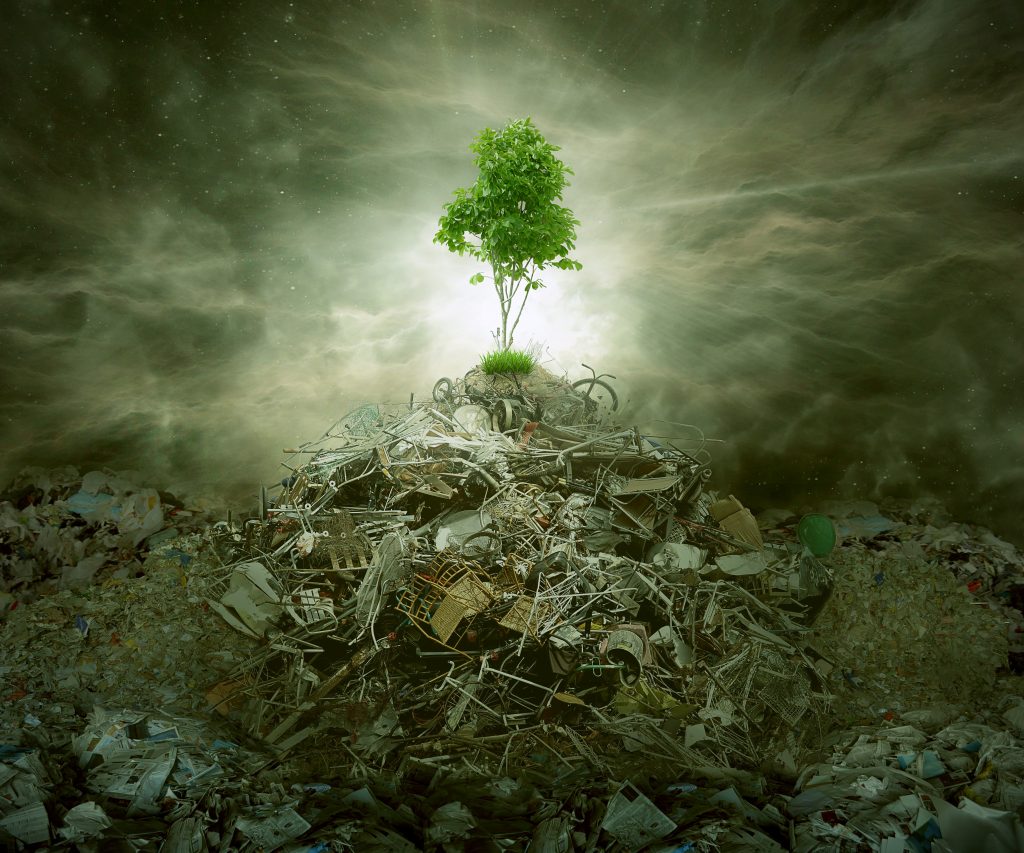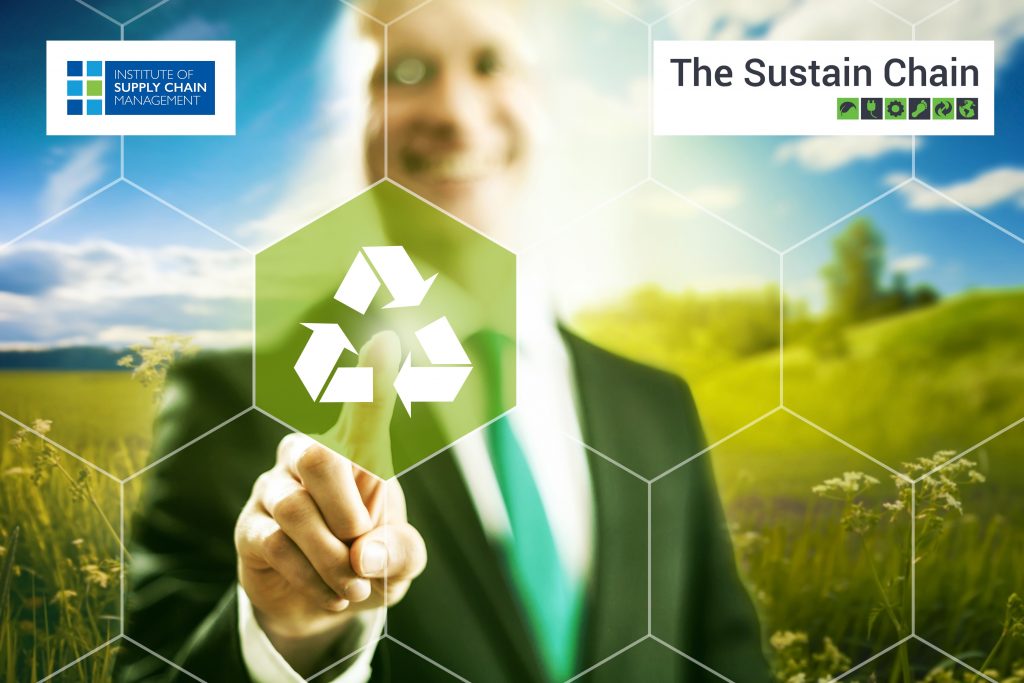
Since the industrial revolution, the world has been facing a severe issue; waste management! The ever-growing rise in mass production has led people all over the world to consume more which results in a massive amount of waste. This, in turn, causes extreme levels of pollution and other environmental issues.
Studies have shown that the world processes only 15% of waste correctly. It’s clear that without a proper waste disposal system the environment soon becomes contaminated and uninhabitable for humans and animals.
What can we do to overcome this increasingly alarming situation? In short; every individual on the planet needs to take responsibility for their part in the problem and become more aware of their material consumption and how they dispose of waste. An effective waste management plan can play a massive part in improving the Earth’s sustainability.
Let’s look at a few simple strategies for efficient waste management, which can be adopted at home or within an organisation.
12 Simple Tips for better Waste Management
1. Do a proper Framework
Make a well-thought-out waste management plan which is practical for everyone to follow. Identify your objectives and establish the best way to achieve them. Once you introduce the plan, keep monitoring and recognising the progress you make towards achieving the objectives and identify new opportunities for further improvements. You need to introduce and maintain clear and detailed guidelines for everyone in your entity to ensure the desired results from your disposal system.
2. Rely on sustainable goods
Sustainable resources are those which don’t interrupt the natural balance of the environment, and the next generation can benefit from. Therefore, it’s best to focus on buying sustainable materials, such as: wood, linen, straw, bamboo, stone, jute, paper, wood, clay, beeswax, sand, etc., Making a conscious decision to buy products made from sustainable materials, whether it be small or large purchases, will rapidly decrease your environmental impact.
Emphasise on 3Rs
To formulate an effective waste management strategy to deal with your daily waste, try to follow the 3Rs: Reduce, Reuse, and Recycle. You should reuse old items as much as possible. If they are no longer of use to you, try offering them to your friends, or donate to a charity. In the workplace, start-up businesses will often be grateful to receive items that you no longer need, following an upgrade or replacement, especially when it comes to equipment that can be costly to purchase. If its not possible to find a way to reuse your waste. Ensure you seperate items that can be composted or recycled in some way, to prevent them heading to a landfill site.
3. Buy only Rechargeable batteries
If you want to reduce resource depletion, don’t buy single-use batteries. The heavy metals used in batteries are toxic to the environment. We can reduce this impact by buying only rechargeable batteries (one of the most used things in our modern daily lives). After their shelf life, ensure you dispose of batteries correctly, by complying with the local regulations. Avoid disposing of these hazardous waste items in regular household garbage bins.
4. Avoid Plastic bottles
Over time there’s been a huge increase in the use of plastic bottles around the world. Unfortunately, it’s the most harmful thing we have done, and keep doing, to Mother Nature. If the tap water quality is excellent in your locality, there’s no need to use bottled water. But, if you are from a region with bad tap water quality, use glass bottles for storing water. Be more eco-friendly!
5. Reduce dependency on disposable plates
Suppose you want to improve your waste management system. In that case, you need to avoid using disposable plates made from plastic or other non-biodegradable materials to reduce their negative impact on the environment. Instead, try to use reusable cutlery and dishes or biodegradable items for large gatherings.
6. Raise awareness
It’s very sad to know that most people are still not aware of the importance of proper waste management. This is the ultimate thing we can do to ensure a habitable future for our next generation. Convincing your colleagues, friends, and family about the importance of the waste management system is crucial. As individuals, it is us who can influence our nearest and dearest and bring the much-needed positivity around protecting the environment, and the impact each household can have.
7. Abide by the local guidelines
As governments become more responsible for reducing the environmental impact in their area’s, many have introduced specific guidelines regarding waste management for households and business enterprises. Ensure you are aware of your responsibilities, get full proof permission from the authority for dealing with your business waste, and follow the guidelines accordingly both at home and in the workplace. Fine’s for organiations who do not abide by the guidelines can be very costly and the reputation of your business can also suffer as you may be deemed irresponsible in the eyes of your customers.
8. Take help of professional services
Organisations often need to dispose of huge amounts of waste. In that case, it’s best to hire a professional waste management services provider. This provides you with hassle-free transportation of waste between plants and business offices. It’s no doubt that they are trained and experienced enough for safer clearance of waste. Paying for their services provides you with peace of mind, and ensures you remain complaint with any legal requirements.
9. Maintain a systematic waste collection operation
Maintain the desired size of waste bins for boosting efficiency and preventing overflowing of waste. For easy identification, you can label the different types of waste bins, including toxic waste and normal garbage. This increases the easement of following the recycling process and helps to prevent wasting worthy resources. By doing this, your organisation will soon improve its ecological footprint.
10. Switch from paper to electronic media
If you want to reduce deforestation, you need to stop relying on the physical printing of items, i.e., paper. The present tech-savvy generation finds it more convenient to use electronic media, including smartphones, for printing purposes. Most organisations have already started delivering e-bills or e-slips to their employees or clients as they work towards becoming more environmently friendly.
11. Don’t waste food unnecessarily
While two-thirds of the worlds population suffers from starvation, the rich waste a huge amount of food each day without any reason. To be more responsible towards society, you could follow a useful meal plan. This will help you to buy only the required quanity of food, which will also save you money. Reducing the amount of food we buy is one of the best ways to prevent the filling of trash.
The bottom Line
Hopefully this article has provided you with some useful ways to improve your overall waste management system. It’s undoubtedly one of the most significant topics of the present time and something which certainly needs to be considered.
Some methods need a little bit of effort to implement, while most are quite simple to adopt. Of course, the best way to deal with it, is to eliminate the creation of waste in the first place.
With the emergence of new technology, the waste management industry has to emphasise the importance of planning, research, and potential implications if we hope to confront the threat of environmental degradation. Actions have to be carried out jointly by the government, business community, and us as individuals if we want to provide protection for the environment. Surely it’s worth taking the extra time and effort to save our planet.
Author Jessica Taber is a Content Marketing Manager of The FSL Group, a leading provider of logistics services and transportation consulting. With multiple locations and strategic affiliates throughout the US, as well as in Canada and Mexico, their core focus is to help clients exceed their goals by maximising efficiency and optimising results.

